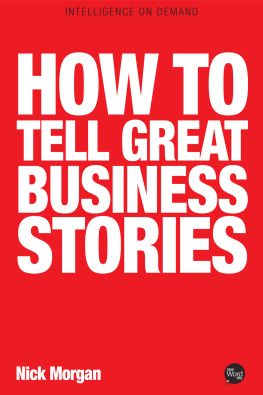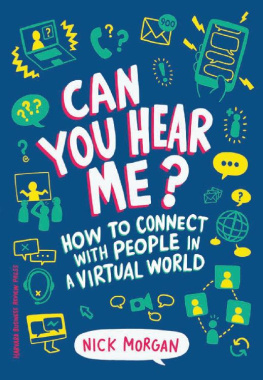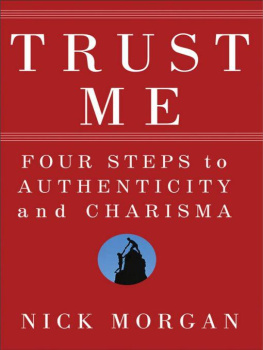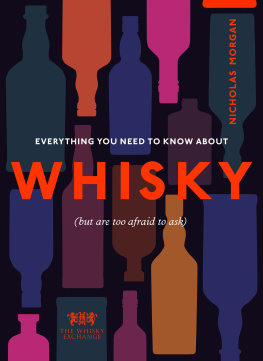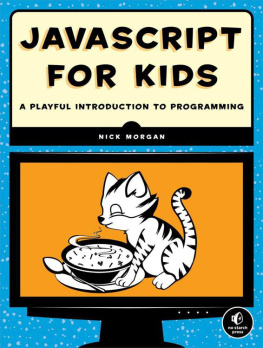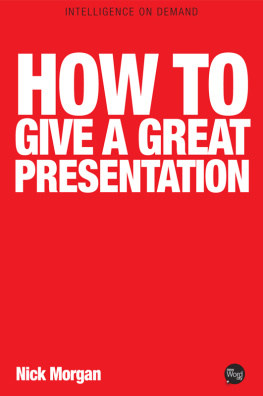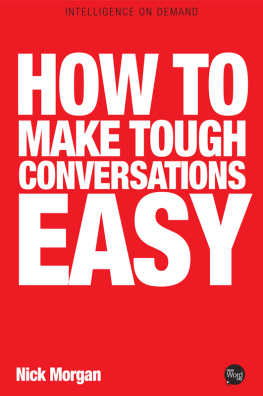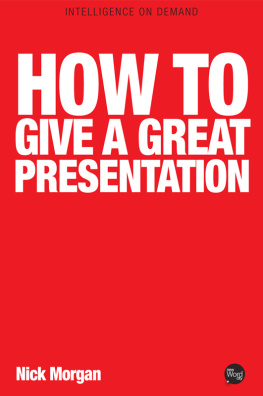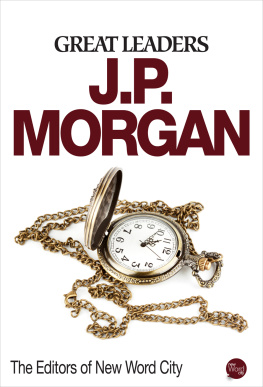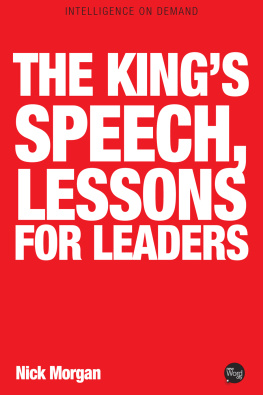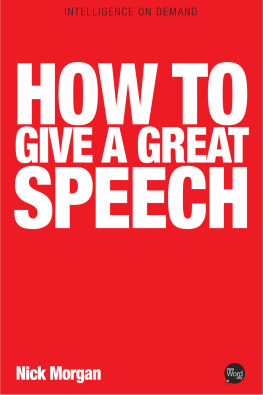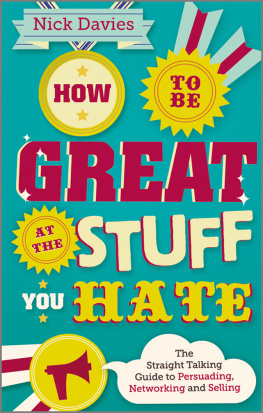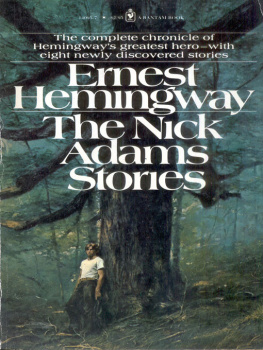Nick Morgan - How to Tell Great Business Stories
Here you can read online Nick Morgan - How to Tell Great Business Stories full text of the book (entire story) in english for free. Download pdf and epub, get meaning, cover and reviews about this ebook. year: 2014, publisher: New Word City, LLC, genre: Romance novel. Description of the work, (preface) as well as reviews are available. Best literature library LitArk.com created for fans of good reading and offers a wide selection of genres:
Romance novel
Science fiction
Adventure
Detective
Science
History
Home and family
Prose
Art
Politics
Computer
Non-fiction
Religion
Business
Children
Humor
Choose a favorite category and find really read worthwhile books. Enjoy immersion in the world of imagination, feel the emotions of the characters or learn something new for yourself, make an fascinating discovery.
- Book:How to Tell Great Business Stories
- Author:
- Publisher:New Word City, LLC
- Genre:
- Year:2014
- Rating:5 / 5
- Favourites:Add to favourites
- Your mark:
- 100
- 1
- 2
- 3
- 4
- 5
How to Tell Great Business Stories: summary, description and annotation
We offer to read an annotation, description, summary or preface (depends on what the author of the book "How to Tell Great Business Stories" wrote himself). If you haven't found the necessary information about the book — write in the comments, we will try to find it.
How to Tell Great Business Stories — read online for free the complete book (whole text) full work
Below is the text of the book, divided by pages. System saving the place of the last page read, allows you to conveniently read the book "How to Tell Great Business Stories" online for free, without having to search again every time where you left off. Put a bookmark, and you can go to the page where you finished reading at any time.
Font size:
Interval:
Bookmark:
Whether youre communicating with one person or a thousand, in this information-saturated, attention-deprived age, you need to earn the attention of your audience as quickly as possible and then hold it. So you should hook them with mythic stories that they already know and love. You want to frame the information you have to give, in other words, with a fundamental story. By drawing them in with one of these stories, you will increase their emotional investment and help them remember your message.
The problem is that most people dont know how to tell stories. What they do is relate anecdotes. Whats the difference? An anecdote is simply a description of something that happened. Stories can take many forms, but at base, a story has a three-part shape: a situation, a complication, and a resolution.
Anecdotes, while occasionally interesting and memorable, are all too often confusing and forgettable. Sometimes, they drive you mad:
The other day, I think it was Wednesday - no, it was Tuesday, because I was wearing my bowling shoes I remember now and I always wear my bowling shoes on Tuesday anyway, I was thinking how my feet were pinching, and I looked down, and I saw why it was the shoes. And I wasnt even going bowling that night. So maybe it was Wednesday? Anyway....
Thats an anecdote. Just stuff that happens. It has a situation, but no complication or resolution. Tell too many of those, and your friends and colleagues will become enthusiastic about the death penalty.
Lets get back to stories. Why should you tell them?
Two reasons. First, neurological research shows that stories influence the way our minds work. For example, the great scientist V.S. Ramachandran has demonstrated that memory depends on attaching emotion to specific events. And noted neuroscientist Joseph LeDouxs work on emotions shows that without them memory is simply not possible. So we attach emotions to events, and those are the beginnings of stories. Mark Turner, of the Institute for Advanced Study, argues that these emotional building blocks give us the stories and parables that are basic to our thought.
Heres how it works. As children, we learn by observation, and what we see are situations... Im sitting in the high chair! With milk! Complications... Wow, when I move my hand rapidly toward it, it falls over! No milk! And resolutions... Mama comes running, cleans up the mess, and gives me more milk! Cool!
In this way, we start to think in terms of actors, situations, actions or complications, and outcomes or resolutions the basic elements of a good story. We attach emotion to these elements, especially when they involve pain and pleasure, fear and happiness, and so on. Its the emotions and the structure of stories - that make them memorable.
The problem is that most of the information that were fed in school, and in our work lives after that, comes to us in lists. The three reasons why the Pilgrims celebrated Thanksgiving. The four forms you must have signed in order to graduate from high school. The five numbers we have to hit to make our quotas this year. The six reasons you should join our exciting investment program. As the lists get longer and more complicated, we have a harder and harder time remembering them, because we have no particular way of making them stick in our minds. Where are the actors and actions? Where are the situations and complications? Where are the satisfying resolutions?
And yet anyone who has ever read, seen, or heard Romeo and Juliet once remembers it forever. So if you communicate more with stories like Romeo and Juliet and less with to-do lists, youll be a more interesting and successful communicator. But, you say, Im no Shakespeare, and besides Romeo and Juliet has already been done. How do I tell interesting stories on my own?
Here, theres good news and the second reason you should tell stories.
Fortunately for communicators everywhere, there are a few archetypal stories that have been told over and over again in Western culture. These stories are so deeply ingrained in us that they shape how we experience and understand the world. Its these stories you need to invoke to significantly improve your communications. You dont have to make up new stories - you just need to tell the old ones again with new names and situations.
Lets consider the basic stories that you need to know to be able to join the ranks of great storytellers.
Ive identified five fundamental tales that you need to know: The Quest, Stranger in a Strange Land, Rags to Riches, Revenge, and Love Story. In the video that follows, I discuss each.
http://www.publicwords.com/video/skilsoft-the-five-stories-that-should-guide-your-communications.html
In the pages ahead, I go into more detail about each of the story types, explaining that each has a distinctive structure and accordingly works in different situations.
The Quest is probably the most fundamental story. The Odyssey is a quest. King Arthur and the Knights of the Round Table? A quest to find the Holy Grail, with a love triangle thrown in to keep it lively. Or think of Moses and the quest to find the promised land in the Old Testament. The writer who most clearly defined and described the Quest narrative was Joseph Campbell, particularly in his iconic book The Hero with a Thousand Faces. In it, Campbell described stories of the heros journey, the Quest, as a powerful means of creating social meaning and understanding of our life roles. Why are we here? What are we supposed to do with our lives? What makes one life meaningful and another empty?
These stories are so basic to our lives that we feel best when we find ourselves in one. Were happy when were on a quest to discover a new solution to an old problem, or to win the championship, or to get that degree. We know these stories so well that they give us courage because we know how they turn out.
In a Quest, a hero sets forth - often reluctantly - to achieve some difficult goal. Along the way, she encounters obstacles (dangers, enemies, roadblocks, and the like) that she has to overcome in order to reach the goal. She may acquire a mentor who helps at crucial moments with wisdom or advice to get around particular difficulties, or to close in finally on the real goal at journeys end.
The overwhelming emotional condition in a Quest narrative is longing for a goal. The hero may be reluctant at first, but eventually does get caught up in the need to reach the end, the point, the prize. Examples from the movies include The Adventures of Robin Hood, Back to the Future, Close Encounters of the Third Kind, every James Bond movie, The Last of the Mohicans, North by Northwest I could go on and on. Hollywood loves Quests.
In the archetypal Quest, the hero achieves the goal and then returns to celebrate her victory and explain what she has achieved. The values that underlie the Quest story are pluck, determination, luck, courage in the face of overwhelming odds - in short, a celebration of the underdog.
The hero is not often valued for her expertise. That is usually left to the mentors. We admire the hero for winning despite all the difficulties that youth, inexperience, and hard terrain can throw in her path. For example, Dorothy in The Wizard of Oz struggles bravely and we love her for it, but the expertise that gets her through comes from the helpers she meets along the way, like Glenda the Good Witch.
Whether youre trying to reach new sales goals, launch a new product, or open a new plant, Quests are everywhere in business life. Lets say, for example, that youve been put in charge of taking your companys international sales team to glory and a whopping 50 percent increase over the previous year. Youve got a meeting with the team to kick off the new year. As you discuss the challenges ahead, use the familiar language of the Quest to let everyone know what theyre up against, but also to let them know that they will be able to achieve the goal.
Next pageFont size:
Interval:
Bookmark:
Similar books «How to Tell Great Business Stories»
Look at similar books to How to Tell Great Business Stories. We have selected literature similar in name and meaning in the hope of providing readers with more options to find new, interesting, not yet read works.
Discussion, reviews of the book How to Tell Great Business Stories and just readers' own opinions. Leave your comments, write what you think about the work, its meaning or the main characters. Specify what exactly you liked and what you didn't like, and why you think so.

